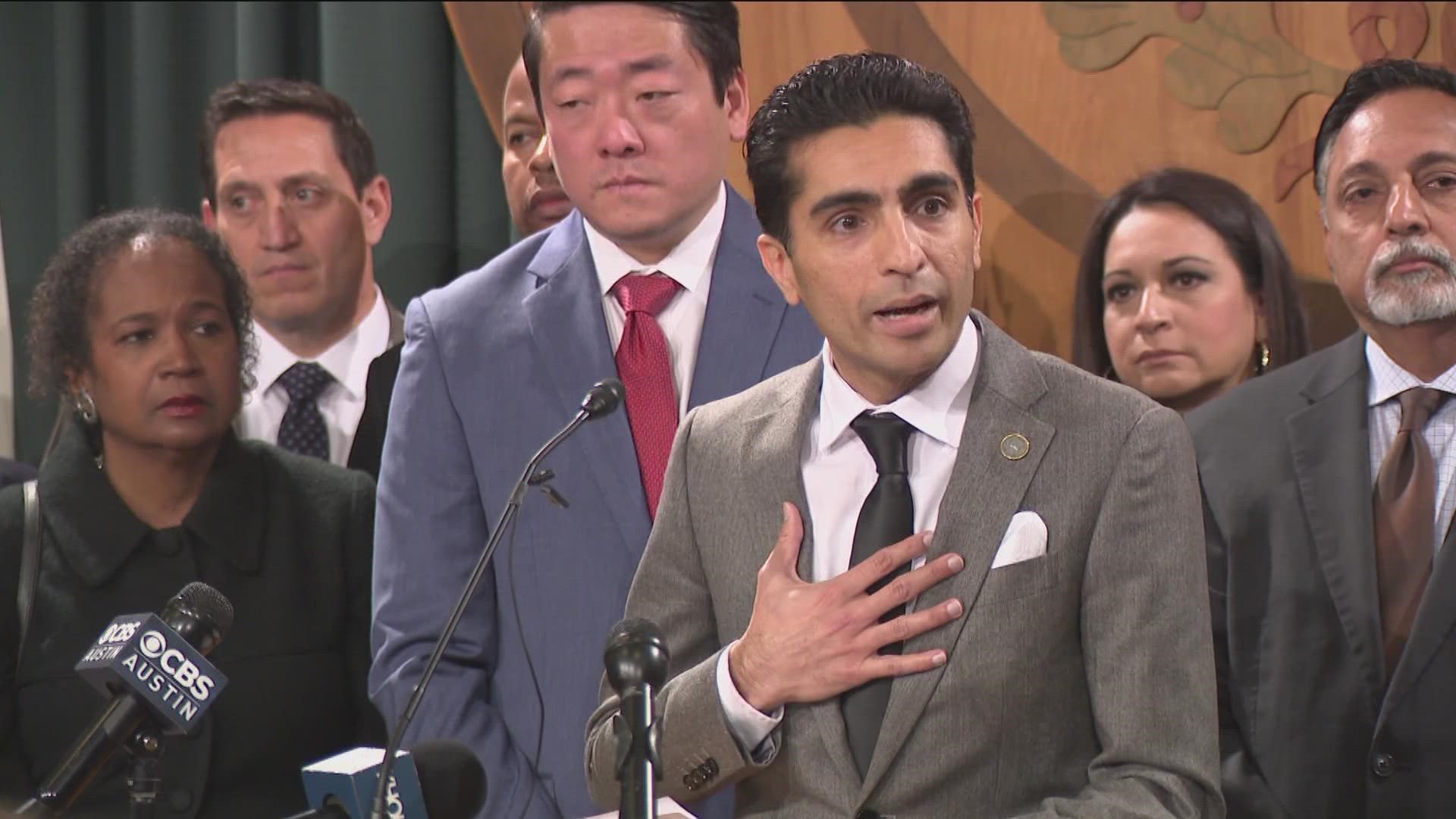AUSTIN, Texas — In the early 1980s, Texas State Rep. Gene Wu said his family came to the U.S. and worked hard in search for the "American dream." He said if Senate Bill 147 were law, he would not be here today.
Wu, a Democrat born in China and raised in Houston, said on Wednesday that the proposed legislation would squash opportunities and freedom for anyone fleeing oppression and seeking refuge in the U.S.
"I am here in defense of the American dream," said Wu, who was joined by more than a dozen other Democratic lawmakers who said they too oppose Senate Bill 147. "This is what we are all here to defend and protect."
SB 147 was filed for the 88th Texas legislative session in November by State Sen. Lois Kolkhorst, a Republican from Brenham.
This bill comes after Gov. Greg Abbott signed the Lone Star Infrastructure Protection Act in 2021 that prohibits Texas governments and businesses from entering contracts with foreign-owned companies that include China, Iran, North Korea and Russia – as it relates to critical infrastructure. The new bill would prohibit those countries and their entities from purchasing Texas land.
Wu called the bill "discriminatory" and "bigoted." Fellow lawmakers who joined him – including members of the Mexican American Legislative Caucus, Texas Legislative Black Caucus and Texas House Democratic Caucus – echoed that sentiment.
"Just as I have told my own community, told the Asian community, we need to be supportive of other groups … because, one day, they will come after you," Wu said. "And here we are."
Wu said the citizenship process for him and his family took about a decade. He said he voted for the 2021 measure, but the latest effort goes too far.
"Until the day you that you are sworn in, that you take the oath to swear to defend this country and the constitution of the United States, as an American citizen, you are a citizen of a foreign nation," Wu said.
Gov. Abbott has already endorsed SB 147, sharing on Twitter that he will sign it.
The governor was asked during a news conference of his own about the potential consequences of SB 147. He said while he is not sure what the final language will look like, some of the targeted foreign individuals will be protected.
"We have a goal here, and that’s to prevent countries that are hostile to the interest of the United States from being able to buy up our farmland or other land that’s so important to us," Abbott said. "It doesn’t effect at all people who are citizens or intend to be citizens of the United States."
State Sen. Kolkhorst echoed the governor in a statement to KVUE. The full statement reads:
"As I have traveled across my senate district, one of the top concerns for many Texans is national security and the growing ownership of Texas land by certain adversarial foreign entities, such as the 130,000 acres near Laughlin Air Force Base in Del Rio that was recently purchased by a former officer of the Chinese army. Many Texans find this trend highly disturbing and a major red flag.
"This bill addresses a national security issue and will preserve our cherished private property rights and constitutional freedoms. It does not prohibit foreign business investment in Texas, because companies may still do business by leasing land and buildings. Passing this law delivers the safeguards to ensure that Texas remains Texas. SB 147 builds on SB 2116 which passed the Texas Legislature unanimously in 2021. That bill protected critical infrastructure against contracts or doing business with Russia, North Korea, China and Iran because of national security issues. Mirroring that legislation, SB 147 also names the same four countries and prohibits them from future purchases of Texas lands. The bill will make crystal clear that the prohibitions do not apply to United States citizens and lawful permanent residents. This has always been about common-sense safeguards against Russian, North Korean, Chinese and Iranian authoritarian regimes, not those fleeing the tyranny of those governments who seek freedom in Texas."
But as the bill stands, it does not list the protections mentioned by both Abbott and Kolkhorst.
SB 147 has yet to move to committee.

